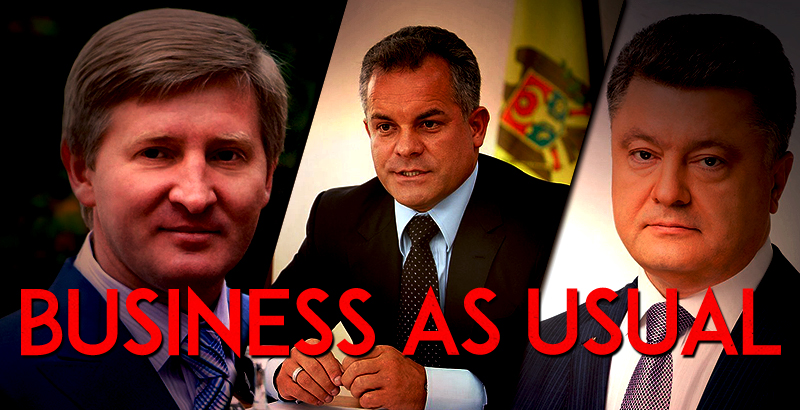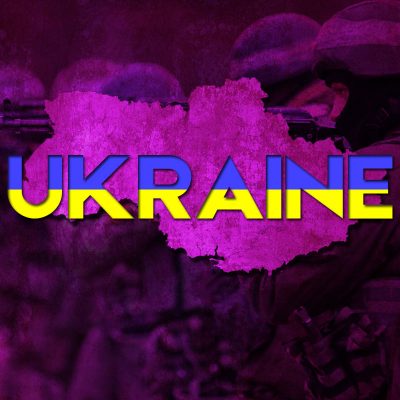Dear friends, the text provides an interesting look at some aspects of the situation in Moldova and Ukraine.

Written by Vasile Boyko, exclusively for SouthFront
A few days ago the European Parliament overwhelmingly approved allowing Ukrainian citizens visa-free entry into Schengen Zone countries. The visa-free regime allows free movement within the EU for a period of no more than 90 days per each six months. It does not give Ukrainians the right of employment. Europarliament reporteur Maria Gabriel said that Ukraine satisfied all EU requirements and “even surpassed them. “ “We are once again affirming the principle that every country satisfying European Commission’s criteria ought to benefit from a visa-free regime for its citizens.”
The EU approved a similar visa-free regime for another post-Soviet country, the Republic of Moldova. At that time, Brussels officials were generously praising the government of that small country, referring to their actions as a “success story” and paragon of effective democratic reforms.
It’s no secret that Washington and Brussels want to encourage Ukrainian and Moldovan governments to pursue policies aimed against Russia. Geopolitical interests above all, that’s clear enough. What does defy understanding is the ease with which European officials throw about terms like “successful democratic reforms” and “satisfying requirements” when assessing these governments. If we hear from high Western offices that the latter “even exceeded expectations,” what were the expectations? The mass violations of human rights in Ukraine and Moldova? Or the unprecedented graft and corruption in which the officials of the above-named countries are engaging?
A visitor from any Western European country would only need to spend a few days in Ukraine or Moldova to realize that both countries have anti-constitutional oligarchic regimes which have dominated the legal system, secret police, and other security agencies, as well as the media. Only the internet remains to express free speech, there are no independent media.
Both countries’ manufacturing sectors are in deep crisis, the population is being pauperized. Those sectors of the economy under oligarch control, chiefly the financial one, which handle billions, are thoroughly corrupted by unlawful arrangements which allow the oligarchs to steal millions. EU officials know perfectly well of their existence, but in spite of that the level of corruption in Eastern European countries under EU control has exceeded all boundaries.
Here’s an example which deserves to be included in every criminal business manual.
Over the past several years, Moldova has been receiving energy from Energokapital intermediary firm through the territory of unrecognized Transnistria, whose territory is criss-crossed by high-tension lines built during the Soviet era. Energokapital is controlled by Vladimir Plakhotnyuk, a Moldovan oligarch and the leader of the Democratic Party of Moldova ruling party, and apparently the interests of the former Transnistria president and also a businessman, Evgeny Shevchuk, were also preserved by this arrangement. This is typical for the post-Soviet Eastern Europe. Nearly all the oligarchs are politicians and vice versa.
In late 2016, Kishinev swore in a new president, Igor Dodon, directly elected by Moldova’s citizens. The leadership in Tiraspol was also changed, instead of Shevchuk the local population elected Vadim Krasnoselskiy.
During one of the first meetings between Dodon and Krasnoselskiy in early 2017, they agreed to eliminate the intermediary, hoping this will allow electricity rates to be reduced, or perhaps simply because they were not personally benefitting from it.
However, that effort naturally collided with the interests of Plakhothyuk who controls the intermediaries. This situation was also exploited by the notorious Ukrainian oligarch Rinat Akhmetov. They hatched a plot to steal revenues from both countries’ budgets through a new intermediary scheme for the delivery and transit of electricity.
In February 2017 in Kiev, following a preliminary agreement between Moldovan and Ukrainian oligarchs, Moldova’s PM Pavel Filin (a Plakhotnyuk protégé) met with his Ukrainian counterpart Vladimir Groysman to finalize the deal.
Starting on April 1, 2017, Kishinev replaced its previous energy importer with the Ukrainian DTEK Trading. It is part of the DTEK group owned by Akhmetov which deals with the energy component of his business empire, starting with coal production on the Donbass and ending with selling electricity produced by powerplants it controls.
Here’s how the scheme works. According to Ukrainian law, all energy producers—and right now they are all private entities since energy market was privatized a long time ago—must sell their energy to the Energorynok state enterprise. The latter then sells energy to a private exporter which is determined by a corresponding tender.
Given the basic cost of energy produced by thermal powerplants and the export tariffs, we obtain the following:
–DTEK-owned powerplants sell energy to Energorynok at 1600 hryvnya ($59) per MWt/hr.
–DTEK Trading (the exporter) buys electricity from Energorynok at 1100 hryvnya ($41) per MWt/hr and sells it to Moldova at $50.2 (1350 hryvnya given current exchange rates).
We can readily see the intermediary’s profit at 750 hryvnya, or $28 per MWt/hr (1600-1100+1350-1100). It’s even greater if one includes VAT tax compensation (20%).
Energorynok’s loss of 500 hryvnya is covered by Ukraine’s budget.
By that very same budget which is kept afloat only thanks to the financial support by Western donors. On April 3, 2017, IMF decided to award Ukraine another credit tranche of $1 billion. The four-year IMF support program for Ukraine entails lending Ukraine $17.4 billion. In 2017, Ukraine expects to receive another $4.4 billion from the IMF.
Even though these are long-term credits, everyone realizes—in Kiev, and Washington, and Brussels—that Ukraine’s government can’t return those credits.
We can also be sure that Brussels realizes that most of these Western taxpayers’ billions make their way into the pockets of a small group of Eastern European oligarchs through a variety of criminal schemes. One should pose the question whether EU officials are themselves parties to these schemes, or are promoting them for the sake of geopolitical interests.





The hysterically funny thing about this is that the National Endowment for Democracy types have this fantasy that Ukraine is a threat to Putin because the Russians will see this glorious, free, modern westernized economy on their doorstep and have a 1917 style revolution in Russia. These people are sick. They destroy, delude, walk away from the mess and then blame someone else.
Dunces R Us? Ukraine supports ME terrorism (birds of feather) Expect EU terrorist attacks to increase.